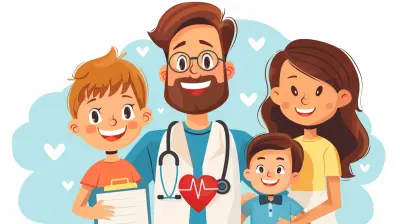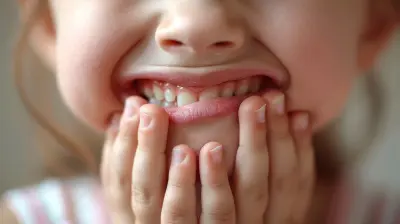The Power of Apologizing to Your Child: Teaching Accountability
26 July 2025
Let’s be real for a second—parenting isn’t a walk in the park. It’s more like navigating a rollercoaster blindfolded. And sometimes (okay, a lot of times), we mess up.
We yell when we shouldn’t. We dismiss those tearful little explanations. We say things in the heat of the moment that we instantly regret. It’s not because we don’t love our kids with every fiber of our being—it’s because we’re human.
But here's something magical, something that doesn't just fix things in the moment, but teaches a life-changing lesson: apologizing to your child.
Now, I know what you might be thinking.
_“Wait, I’m the parent. Shouldn’t they be learning from me, not the other way around?”_
That’s exactly the point. Apologizing isn’t about giving up authority. It’s about modeling one of the most important life skills: accountability.
Let’s dive headfirst into why apologizing to your child is more powerful than you think, and why embracing your imperfections can raise strong, emotionally intelligent humans.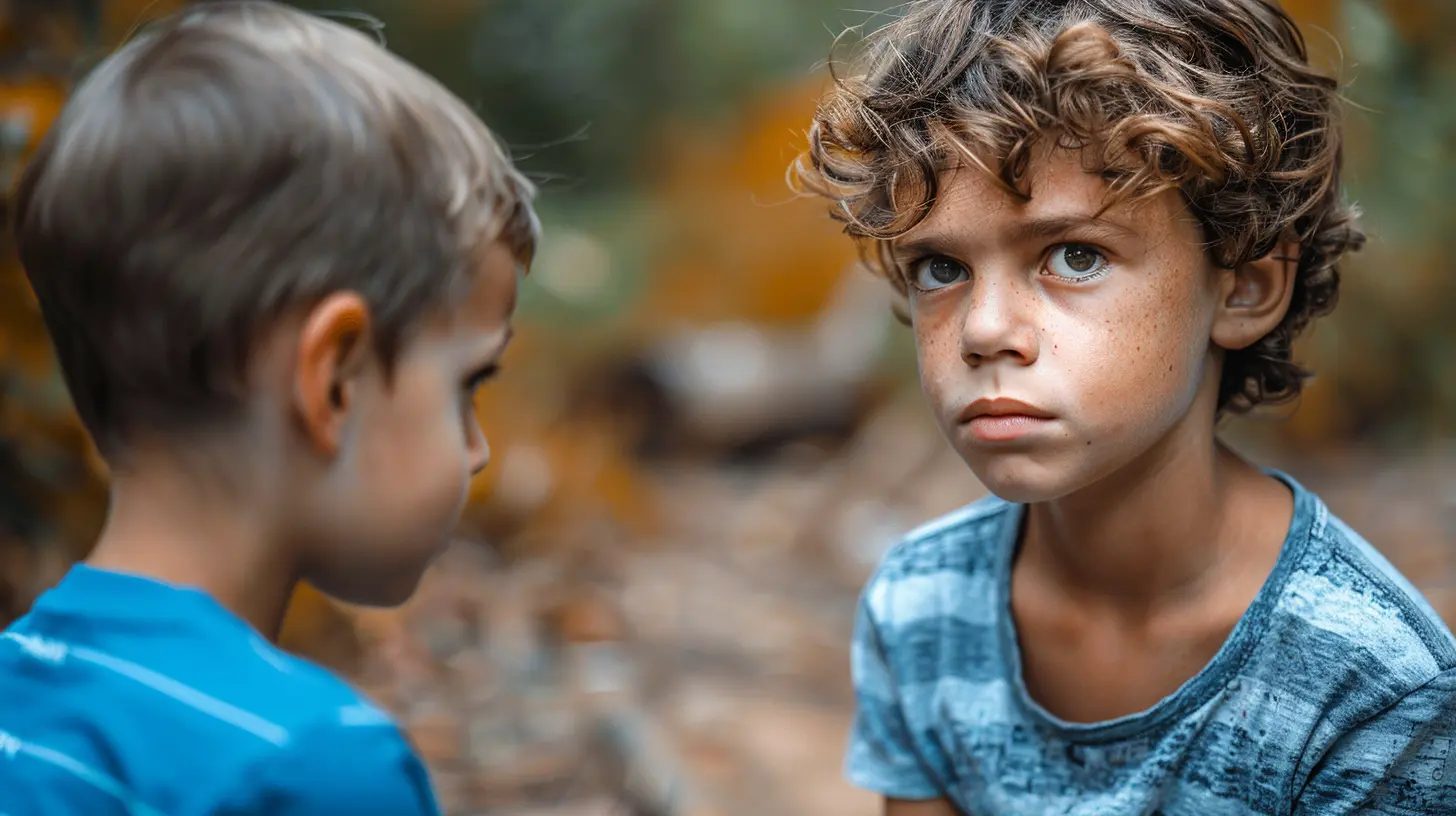
Why Saying 'I'm Sorry' Matters More Than You Realize
We grow up thinking that apologizing is admitting defeat or weakness. But how wrong we were! When a parent apologizes, it doesn't diminish their role—it adds depth, empathy, and connection.Kids Are Constantly Watching Us
Children are like emotional sponges. They soak up everything we say and do, especially the things we don’t realize we’re teaching. You could give the most heartfelt lecture on honesty, but if they see you lie to get out of a parking ticket, guess what message really sticks?The same goes for accountability.
When you own your mistakes and sincerely apologize, your child learns that it's okay to mess up—as long as you take responsibility.
Apologizing Builds Trust
Let’s imagine this:You come home tired, snap at your kid for something minor, and walk away. Later, you realize you overreacted. If you do nothing, your child is left confused, hurt, maybe even resentful.
But if you go back, kneel down to their level, and say, _“Hey, I’m really sorry I yelled earlier. I was stressed, but I shouldn’t have taken it out on you,”_—everything changes.
That one simple act restores trust. It tells your child, _“Your feelings matter. I see you. I hear you.”_ That is some powerful parenting.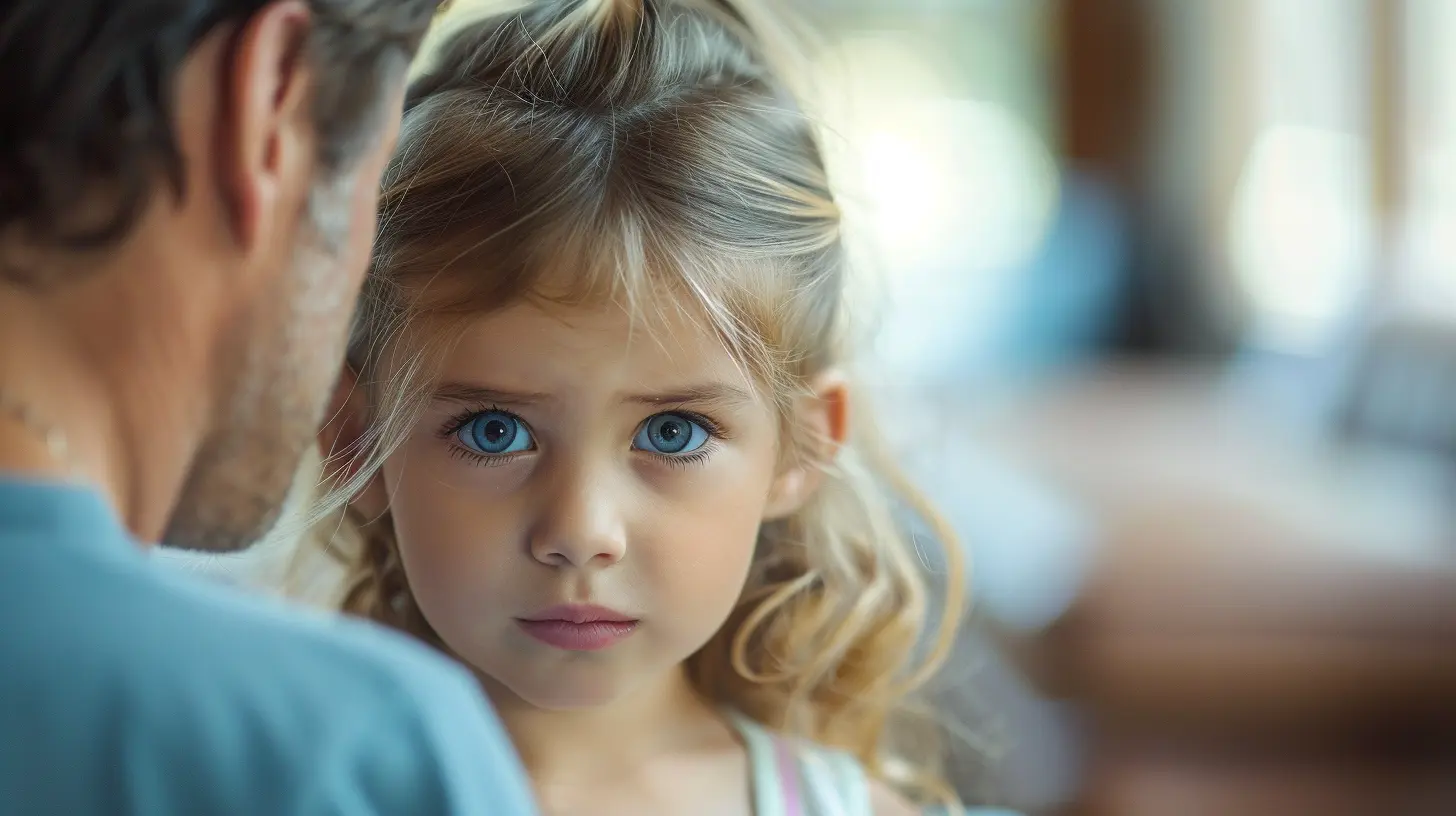
The Hidden Lessons in a Parent's Apology
Apologizing isn’t just about patching things up. There are deep-rooted lessons wrapped in those simple words.1. Mistakes Are Normal
We all mess up—and that’s okay. Kids internalize this mindset when they see their parents handle mistakes with grace. Instead of hiding or denying their errors, they learn to accept them as part of the human experience.No one wants to raise a perfectionist who crumbles at the first sign of failure. Apologizing teaches emotional resilience.
2. Accountability = Strength
Let’s flip the script. Admitting you were wrong doesn’t weaken your authority—it strengthens it. Kids respect honesty. They admire authenticity.You’re not just teaching them to say “sorry”—you’re showing them how to own their behavior and grow from it.
3. Healthy Conflict Resolution
Every relationship—parent-child included—has friction. It’s unavoidable. But how we handle that friction is what makes or breaks emotional health.When kids see apologies in action, they learn the art of repairing relationships. They understand that disagreements don’t have to mean disconnection. That’s a skill they’ll carry into friendships, romantic partnerships, and work relationships for the rest of their lives.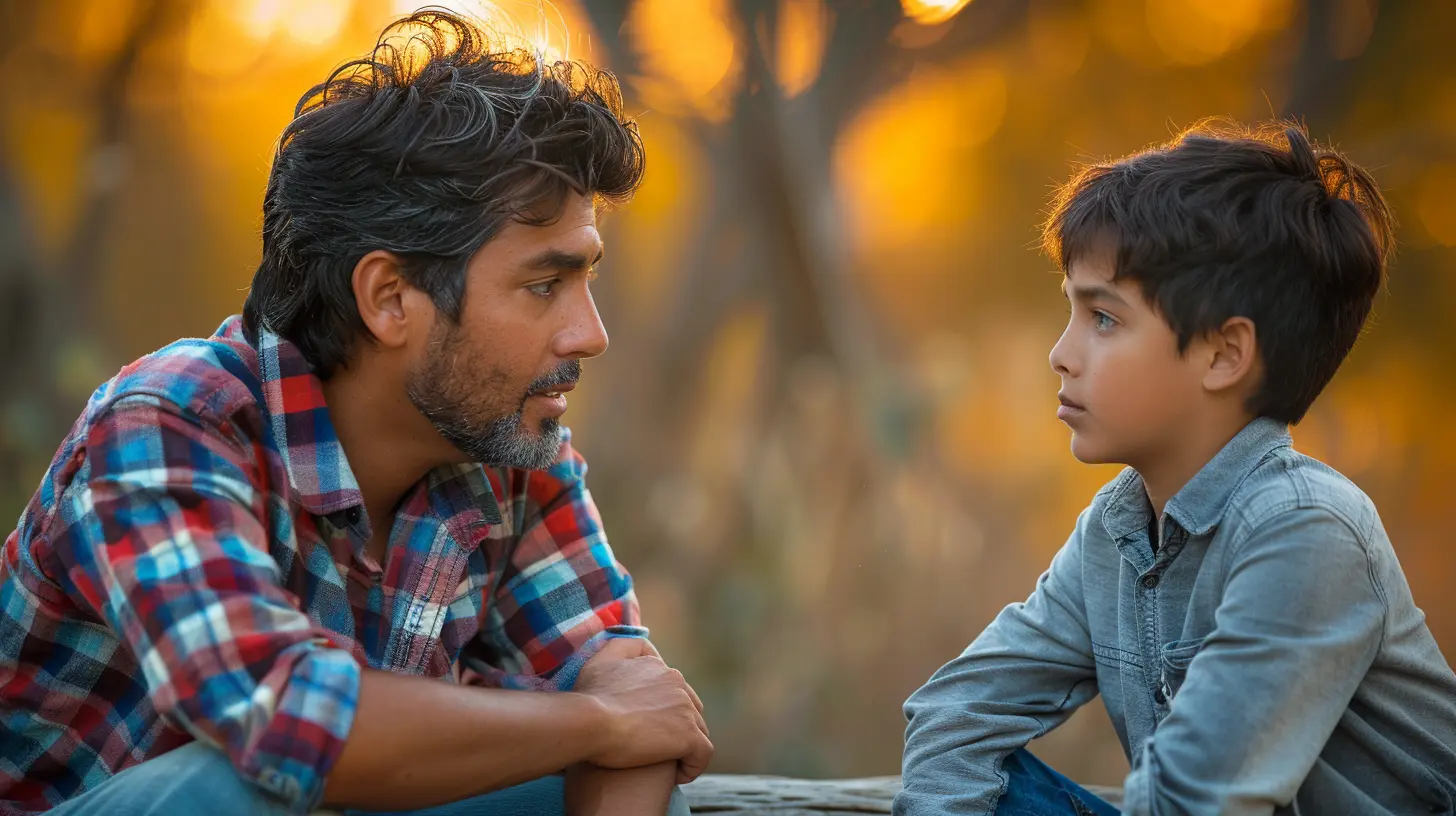
How to Apologize to Your Child: The Right Way
Alright, so we’re on board with saying sorry. But how we apologize matters a ton. It’s not about mumbling a quick “Sorry” just to move on.There’s a big difference between a half-hearted apology and a heartfelt one.
Here’s a step-by-step guide:
1. Don’t Wait Too Long
Timing is key. The sooner you acknowledge the hurt, the easier it is to reconnect. Sure, take a few minutes to cool down if you need to, but don’t let it drag on. Kids stew in confusion longer than you think.2. Get on Their Level—Literally
Physically lower yourself to their eye level. It’s a tiny move with a huge impact. It means you’re not “talking down.” You’re connecting human to human.3. Use Specific Language
Generic apologies are easy to brush off. “I’m sorry” is okay, but “I’m really sorry I shouted at you when you spilled the juice. I know it was an accident and I shouldn’t have reacted that way” is gold.It shows you understand what happened and how it made them feel.
4. Acknowledge Their Feelings
Think of this as emotional first aid. Say, _“I can see that made you upset.”_ Or _“I know that scared you.”_Validation is the ultimate soother. It helps your child feel safe and heard.
5. Offer to Make It Right
This isn’t about bribing with ice cream (tempting, I know). It’s about genuine repair. Say, _“Next time, I’ll try to take a deep breath before responding,”_ or _“Can I have a hug?”_It’s the beginning of emotional healing.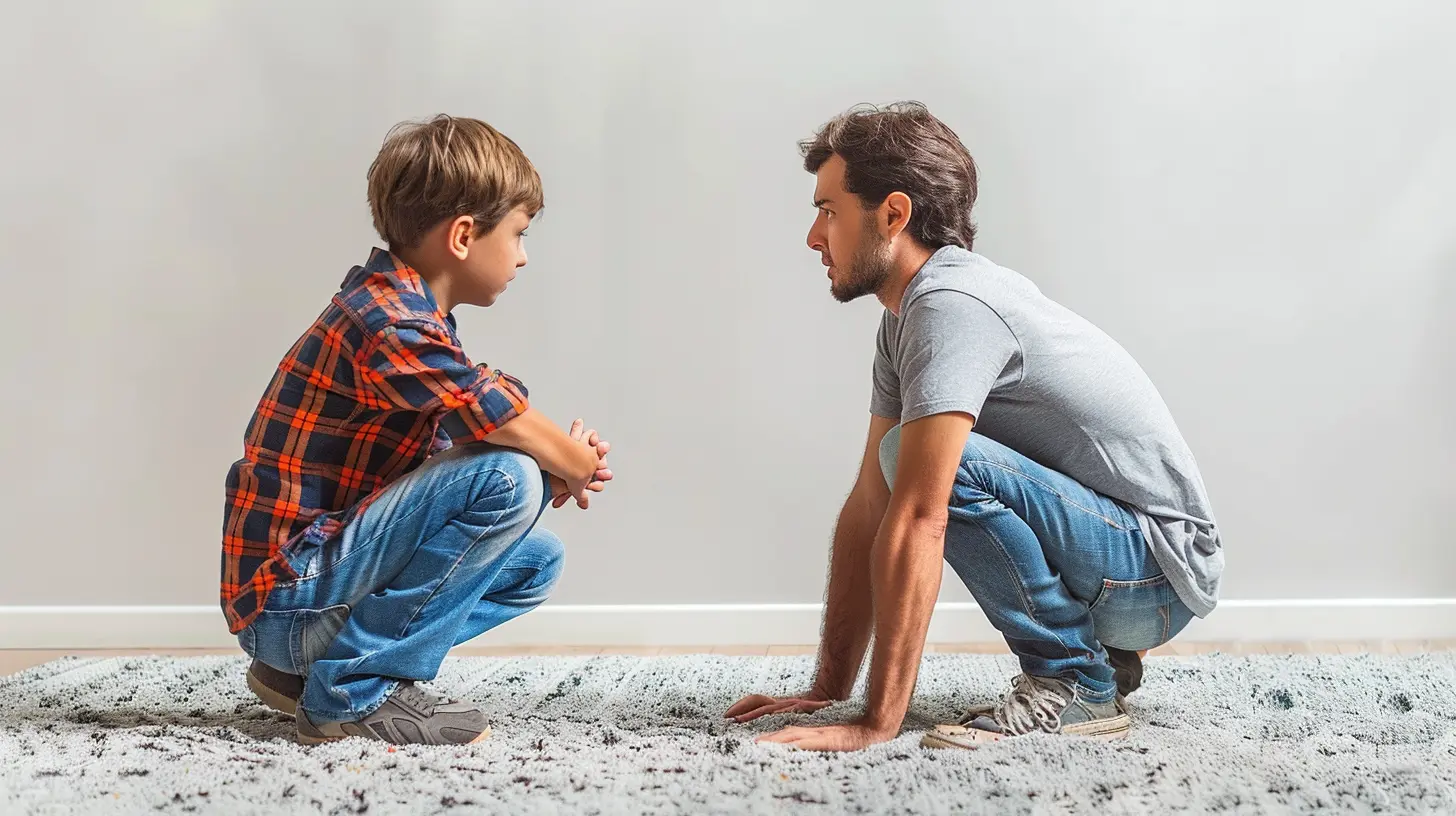
What If My Child Doesn’t Accept My Apology?
Ah, the dreaded silence. Or worse—a shrug.Here’s the thing: you’re apologizing for your actions, not to control their reaction. Your job is to own your behavior. Their job is to feel their feelings.
Don’t force forgiveness. Don’t take it personally. Give them space. Show consistency. When your child sees that your apology is genuine and not manipulative, they’ll come around—on their time.
The Long-Term Impact: Raising Emotionally Intelligent Adults
Let’s zoom out for a second. This one parenting habit—apologizing—has ripple effects that go way beyond today’s tantrum or meltdowns.Here’s what your child is learning over time:
- Self-awareness: They learn to tune into their own behavior and how it affects others.
- Empathy: They understand how words and actions cause pain—and how to heal it.
- Communication skills: They find the courage to speak up and say, “I was wrong,” or “I hurt you.”
- Resilience: They learn that relationships can heal, mistakes can be repaired, and it’s okay to be imperfect.
It’s parenting with purpose, not perfection.
Common Fears That Hold Parents Back From Apologizing
We’ve all been there. That awkward moment when you know you should apologize but… ugh, your pride gets in the way.Let’s quickly unpack the most common fears:
“They’ll stop respecting me.”
Nope. Respect isn’t built on fear. It’s built on mutual understanding. Vulnerability earns more respect, not less.“I’ll lose my authority.”
Authority and compassion can totally coexist. Think about the best teachers or coaches you ever had. They were both firm and fair, right? That’s the sweet spot.“It’s uncomfortable.”
Yes, it is. Growth usually is. But the more you do it, the easier it gets. Plus, your child will learn that hard conversations are worth having.Turning Apologies Into Everyday Practice
This isn’t just a one-and-done deal. Make apologizing part of your family culture.Here’s how:
- Model it: Let them see you apologize to your partner, your friends, even the cashier if necessary.
- Encourage them: Praise your child when they apologize sincerely. Not in a “good job” way, but in a “that was brave and kind” way.
- Talk about it: Bring up examples from books, shows, or real life. Point out how apologies change the tone of a situation.
The more you normalize it, the more natural it becomes.
Conclusion: Small Words, Big Lessons
Parenting is full of teachable moments, but few are as powerful as the moment you say, _“I’m sorry.”_It’s not just about fixing a broken moment—it’s about planting deep, meaningful lessons that will shape the kind of adult your child becomes.
You’re not losing ground. You’re building bridges.
You’re not showing weakness. You’re showing what real strength looks like.
So the next time you slip up (because you will), take a breath, swallow your pride, and say those two game-changing words. Your child will learn more in that moment than any lecture you could ever give.
Because at the end of the day, it’s not about being a perfect parent—it’s about being a real one.
all images in this post were generated using AI tools
Category:
Parenting SupportAuthor:

Kelly Snow
Discussion
rate this article
1 comments
Kade Lynch
Apologizing to kids: because even parents need a ‘do over’ sometimes!
August 3, 2025 at 3:07 PM

Kelly Snow
Absolutely! Apologizing models accountability and shows kids that everyone makes mistakes, fostering understanding and growth.

